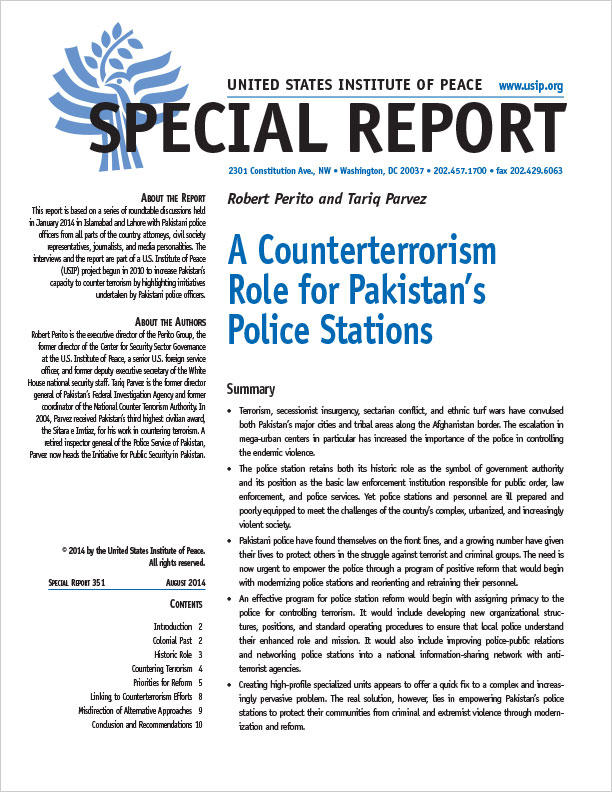Violence is escalating in Pakistan, both in its megacities and along the border with Afghanistan—from terrorism, to secessionist insurgency, to sectarian conflict, to ethnic turf wars. The police station and the police who staff it, despite their historic role as a symbol of government authority and responsibility for public order, are woefully ill prepared and ill equipped to meet these challenges. This report, part of a project to increase Pakistan’s capacity to combat terrorism, explores the role police stations could and should play and suggests definitive steps to that end.
Summary
- Terrorism, secessionist insurgency, sectarian conflict, and ethnic turf wars have convulsed both Pakistan’s major cities and tribal areas along the Afghanistan border. The escalation in mega-urban centers in particular has increased the importance of the police in controlling the endemic violence.
- The police station retains both its historic role as the symbol of government authority and its position as the basic law enforcement institution responsible for public order, law enforcement, and police services. Yet police stations and personnel are ill prepared and poorly equipped to meet the challenges of the country’s complex, urbanized, and increasingly violent society.
- Pakistani police have found themselves on the front lines, and a growing number have given their lives to protect others in the struggle against terrorist and criminal groups. The need is now urgent to empower the police through a program of positive reform that would begin with modernizing police stations and reorienting and retraining their personnel.
- An effective program for police station reform would begin with assigning primacy to the police for controlling terrorism. It would include developing new organizational structures, positions, and standard operating procedures to ensure that local police understand their enhanced role and mission. It would also include improving police-public relations and networking police stations into a national information-sharing network with anti-terrorist agencies.
- Creating high-profile specialized units appears to offer a quick fix to a complex and increasingly pervasive problem. The real solution, however, lies in empowering Pakistan’s police stations to protect their communities from criminal and extremist violence through modernization and reform.
About the Report
This report is based on a series of roundtable discussions held in January 2014 in Islamabad and Lahore with Pakistani police officers from all parts of the country, attorneys, civil society representatives, journalists, and media personalities. The interviews and the report are part of a U.S. Institute of Peace (USIP) project begun in 2010 to increase Pakistan’s capacity to counter terrorism by highlighting initiatives undertaken by Pakistani police officers.
About the Authors
Robert Perito is the executive director of the Perito Group, the former director of the Center for Security Sector Governance at the U.S. Institute of Peace, a senior U.S. foreign service officer, and former deputy executive secretary of the White House national security staff. Tariq Parvez is the former director general of Pakistan’s Federal Investigation Agency and former coordinator of the National Counter Terrorism Authority. In 2004, Parvez received Pakistan’s third highest civilian award, the Sitara e Imtiaz, for his work in countering terrorism. A retired inspector general of the Police Service of Pakistan, Parvez now heads the Initiative for Public Security in Pakistan.
